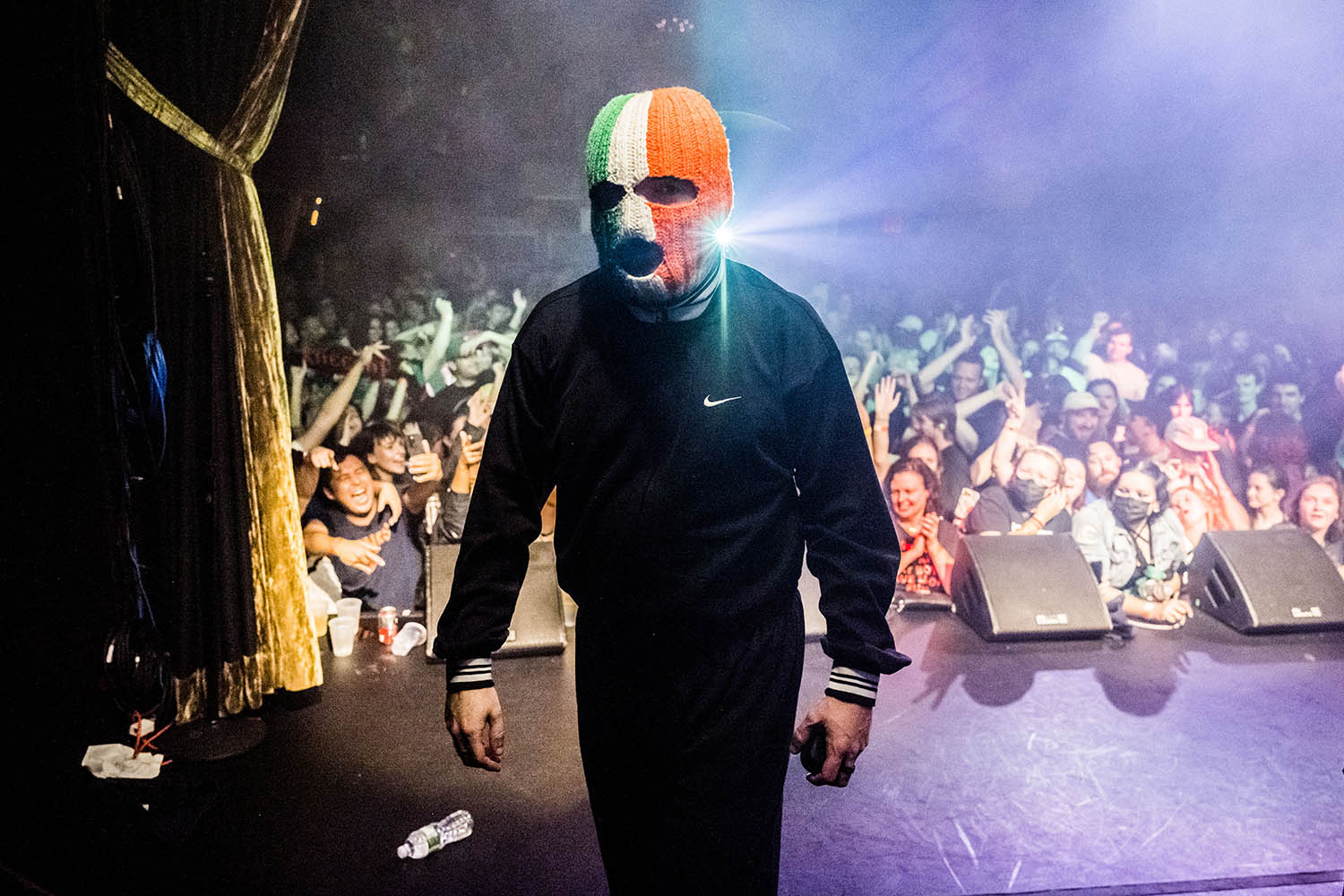A strange thing happened in the UK last week. The band Kneecap stopped being what they were – three guys who rap in Irish – and became something else entirely. They stopped being musicians and became conduits through which a collective, countrywide shuddering discomfort could be disseminated.
Kneecap stopped being Kneecap. Now they were a memetic, deformed, contextless thing that was important enough to be debated in parliament and dangerous enough to be banned, potentially, from Glastonbury.
It came after old footage emerged that appeared to show band members chanting “up Hamas, up Hezbollah” at one gig and allegedly encouraging fans to “kill your local MP” at another.
The public were duly horrified, citing the murders of the MPs Jo Cox and David Amess, and Kneecap issued an apology to their families. “We reject any suggestion that we would seek to incite violence against any MP or individual,” the group said.
And yet their words were treated with more gravity than other attacks on British MPs. In March last year, the Conservative party’s largest donor said Diane Abbott, the Labour backbencher, makes you “want to hate all black women” and “should be shot”; in 2019, a video emerged showing soldiers from the parachute regiment firing their guns at a large picture of Jeremy Corbyn taped to the wall.
Those attacks were made by British people, within Britain. There is a different set of standards for Kneecap.
The band’s enduring feature is that they have always made people feel uncomfortable. In their early days, they had their music removed from RTÉ after complaints about drug references. They were escorted from their own gigs at student unions in the Republic of Ireland while people decided whether or not it was OK to make oblique and obvious references to the Troubles and the IRA.
Less than a decade later, they’re winning Baftas and playing at Coachella festival. Their messaging didn’t change – but their audience did. And that growing audience is increasingly uncomfortable with how they use their platform. (In England, you are encouraged to “use your platform” as a famous person only to speak out on prescribed issues, such as the declining bee population or Ukraine.)
Perhaps that’s because Kneecap are from a very different Ireland than the Ireland that Britain is used to seeing.
Irish culture has enjoyed something of a renaissance in England in recent years. Guinness has never been more popular; Paul Mescal is quasi-royalty. But the Irishness that’s celebrated in England has become, as time goes on, a sanitised and twee Irishness, one that flattens the country and the people who live within it – and outside it – to a smiling, O’Neills shorts wearing, darkly sexy bunch who do not have any political views about the occupation of Ireland, and whose view of Ireland and Palestine as existing in a shared struggle is a cartoonish and childish false equivalence.
Newsletters
Choose the newsletters you want to receive
View more
For information about how The Observer protects your data, read our Privacy Policy
Kneecap are from a very different Ireland than the Ireland that Britain is used to seeing
Kneecap are from a very different Ireland than the Ireland that Britain is used to seeing
Of course, Kneecap do not claim to speak for the nation of Ireland. They are not ambassadors. When they speak, they do so as individuals and artists, and yet, as their manager Daniel Lambert put it, the trio are now being placed under greater levels of scrutiny than elected officials.
Like many moral panics and culture wars, Kneecap-gate reached its feverish apex in pitchfork-wielding carceral form, with the Tory leader Kemi Badenoch suggesting that the band could – and perhaps should – go to prison. “There are people in jail for saying things that are not as bad as what Kneecap has said,” she told ITV. “It’s time for some justice.” Then it was announced that the band were being investigated by counter-terror police.
It all felt farcical. As Ed Campbell, a correspondent for Joe.co.uk, put it on Twitter: “They are talking about Kneecap like they’re Abu Hamza.”
Kneecap’s own statement is more succinct; describing how “an extract of footage, deliberately taken out of all context, is now being exploited and weaponised, as if it were a call to action”. Words were not deeds, the band said, calling the reaction an “absurd distraction” from a wider issue. “They want you to believe words are more harmful than genocide.”
“We do not, and have never, supported Hamas or Hezbollah. We condemn all attacks on civilians, always,” they said. The fact that the statement was seized upon as some sort of capitulation (why won’t you defend Hamas?! You’re not hardcore! You shouldn’t care that it’s a crime under the Terrorism Act 2000!) is a telling indicator of just how ridiculous the row has become.
The Kneecap conversation has ascended to being the circus part of bread and circuses. A manufactured outrage that has lasted too long and become too feverish. As Kneecap themselves describe it, a “moral hysteria”. An embarrassing level of scrutiny placed on an ouroboros conversation that has completely lost the run of itself.
Photograph by Sacha Lecca/Getty

